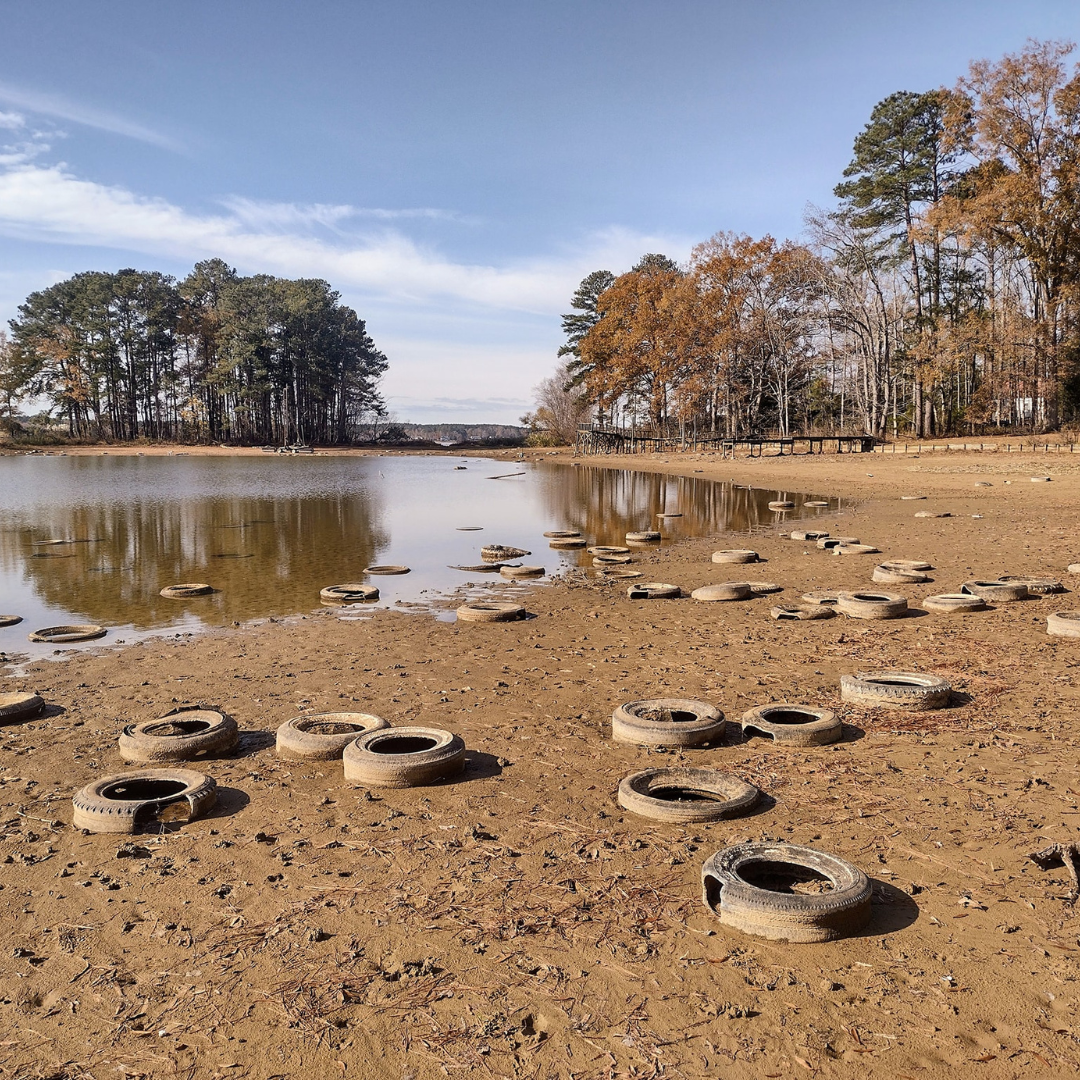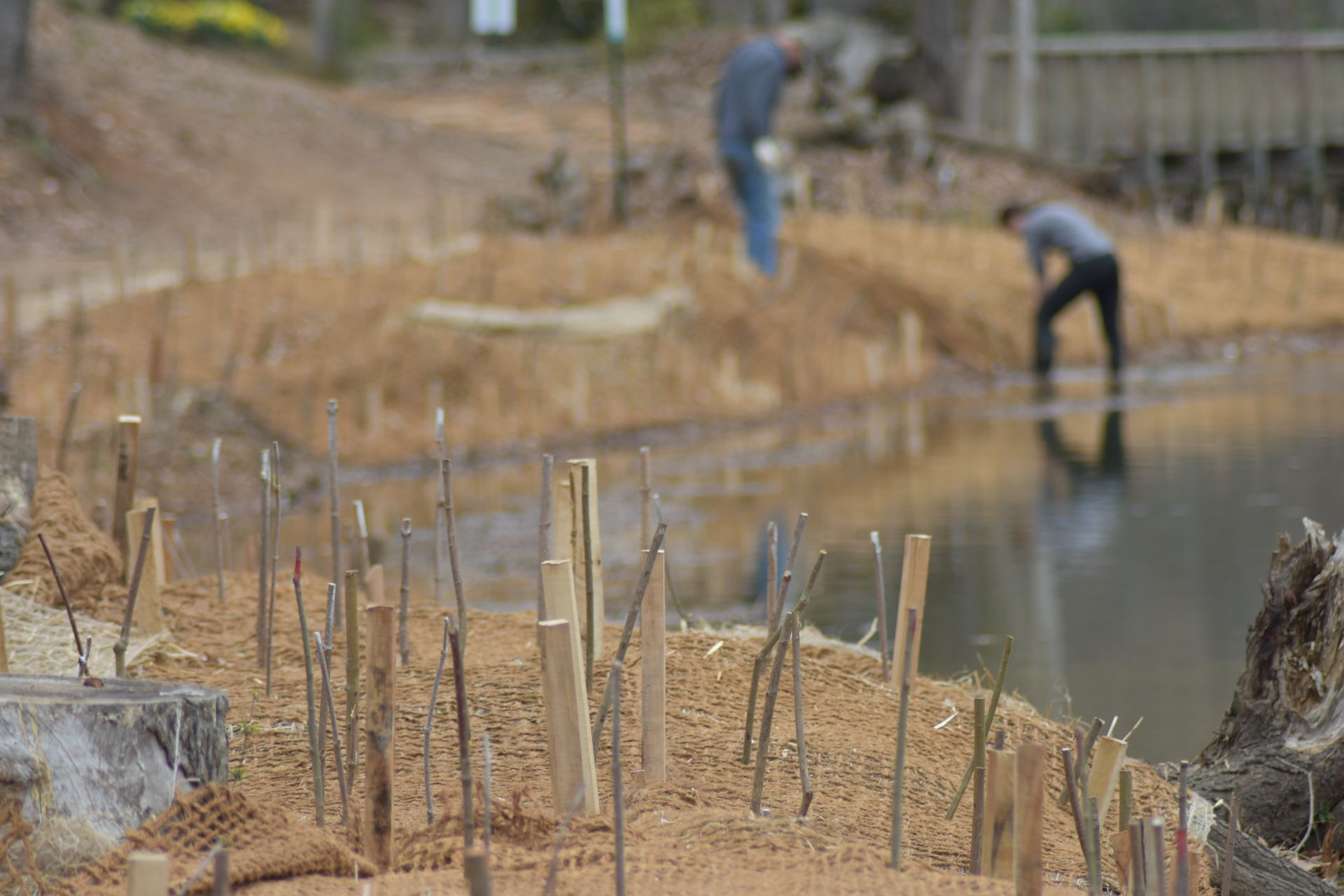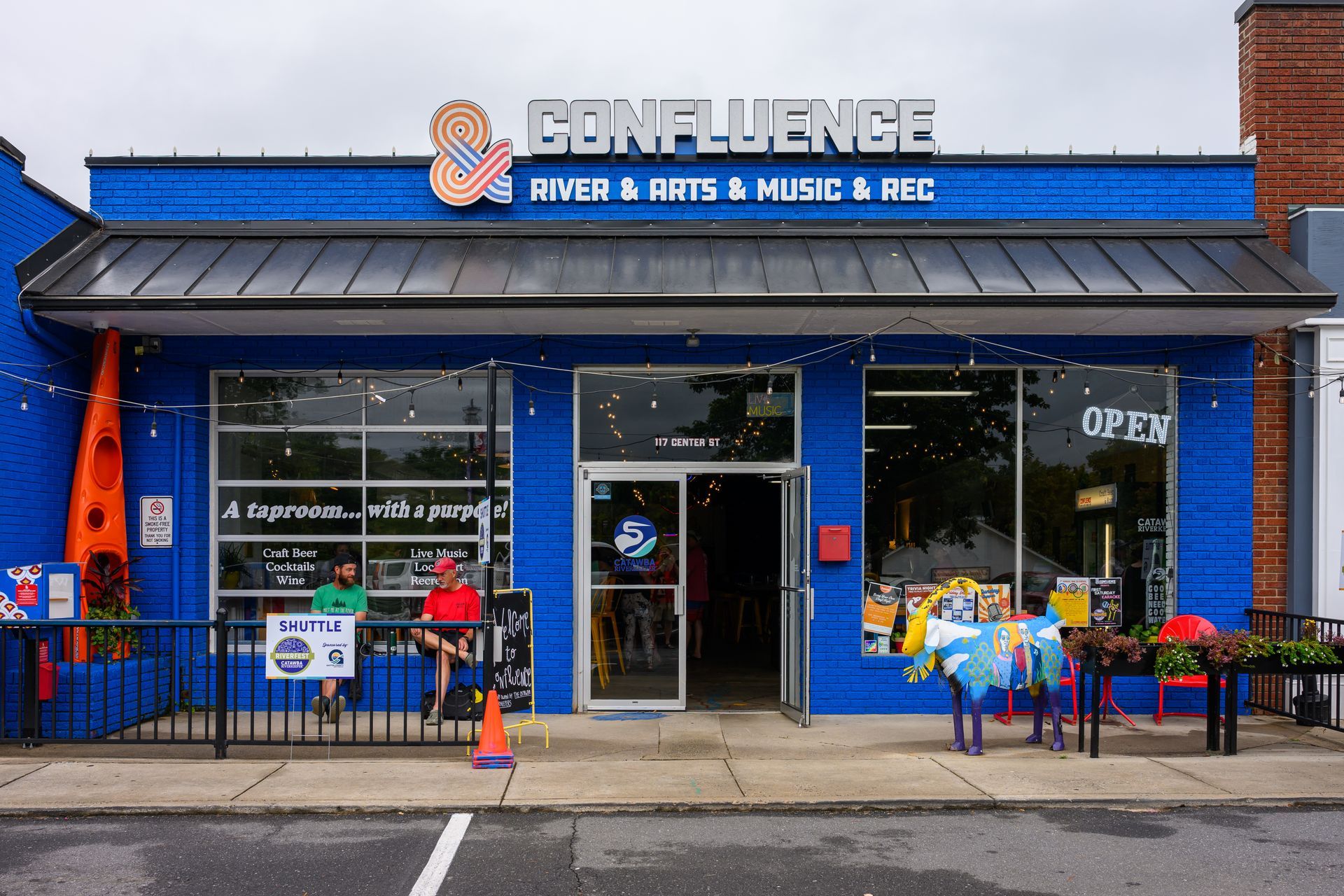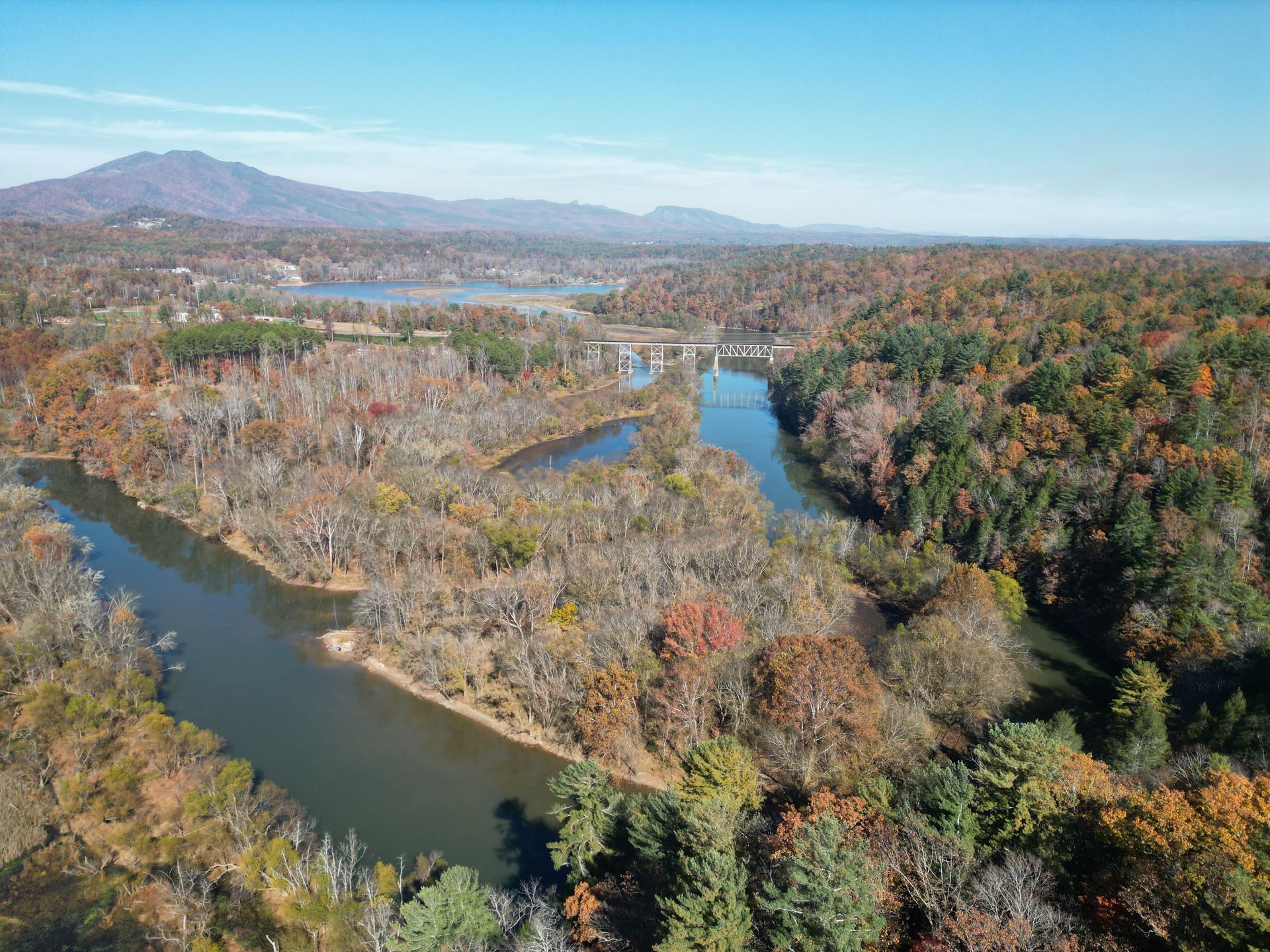Tires: What's the problem and what can you do about it?
March 6, 2024
Tires in our lakes, rivers, and streams

The Problem
What was once believed to be good for fish habitat, tires are now known to leach toxins and cancer causing chemicals, such as 6PPD-Quinone, zinc, and other heavy metals, into our waters and are absorbed by fish and humans. Last year, we removed 1,000 tires from local waterways and we know there's a lot more out there.
Two Things You Can Do About it TODAY!
- If you live in SC, tell your state senator to support S. 1020, which formally criminalizes the dumping of tires on land and in waters of SC when permission is not given. If found guilty, the offending party will be charged with a misdemeanor.
- Sign up to volunteer to remove tires from Lake Wateree while the water levels are down on Saturday, March 30th. Thanks to financial support from PalmettoPride, we'll have the equipment to get a lot of tires out in one day. But, we need volunteers to help with this special project. We'll meet at Molly Creek Landing at 10 AM.

Live staking is a streambank restoration approach that reduces erosion and sediment pollution. This is the practice of planting dormant branch cuttings of native plants along streambanks (also known as riparian zones) to help hold soil in place along the waters' edge. Live stakes are planted along with native plant seeds and shrubs to create riparian buffers, which help prevent sediment from becoming a stream pollutant by securing the soil in place with good root systems. Riparian buffers also filter out other pollutants, such as chemicals, oils, fertilizers, and trash, before they enter our waterways.

We're excited to announce that we are relocating Catawba Riverkeeper's headquarters to Confluence South Fork, our community center taproom in downtown Cramerton , NC . Th is move follows four years of operating out of The River Room in McAdenville and reflects an organizational transition focused on aligning our facilities with Catawba Riverkeeper's mission and long-term sustainability . “Our two taprooms have served as creative and welcoming spaces for engaging the community and inviting more people into the work of protecting our local waterways,” said Wendy Cauthen, Retail Manager. “We are grateful for all the opportunities we’ve had to connect with people over a beer brewed with water from the Catawba-Wateree River basin while enjoying a view of McAdenville Lake at The River Room. While we’ll miss that space, we’re excited to be just a few minutes down the road at Confluence, where we can more fully integrate our mission into a single, dynamic community hub.” Confluence, known affectionately as a “taproom with a purpose,” reminds all visitors who step through the door that “good beer needs good water.” Visitors are greeted by the phrase prominently displayed next to a striking mural by local artist Heidi Nisbett, which illustrates both the beauty and geography of the Catawba–Wateree River basin. “With staff now working on-site at Confluence, we can more intentionally connect the art, music, and recreation people already love with mission-driven programming that highlights education and conversation surrounding water conservation,” said Executive Director Dr. Mo Drinkard. “Our mission has always been to preserve, protect, and restore the waters that millions of Carolinians depend on every day. This move allows us to streamline our efforts, deepen public engagement, and continue serving as a trusted, science-based voice for the river.” We are deeply grateful for our time at The River Room and for the support of the Town of McAdenville, Pharr Corporation, and the surrounding community. Now headquartered just minutes away in Cramerton, we look forward to continuing these and other partnerships across the entire 5,610-square-mile Catawba–Wateree River basin. We invite longtime supporters, Confluence regulars, and new visitors alike to stop by and say hello to staff following our February move.





